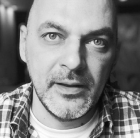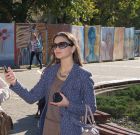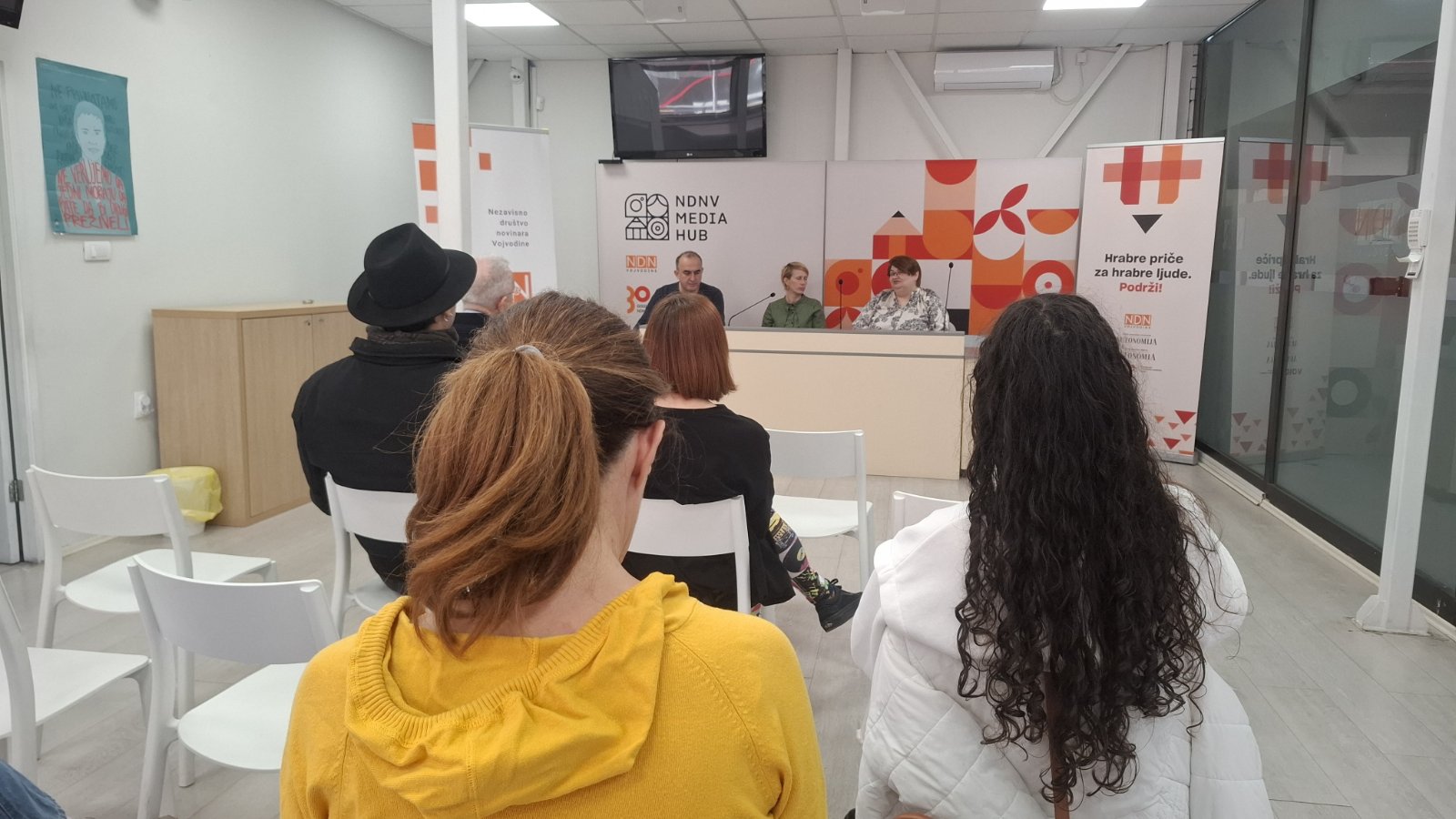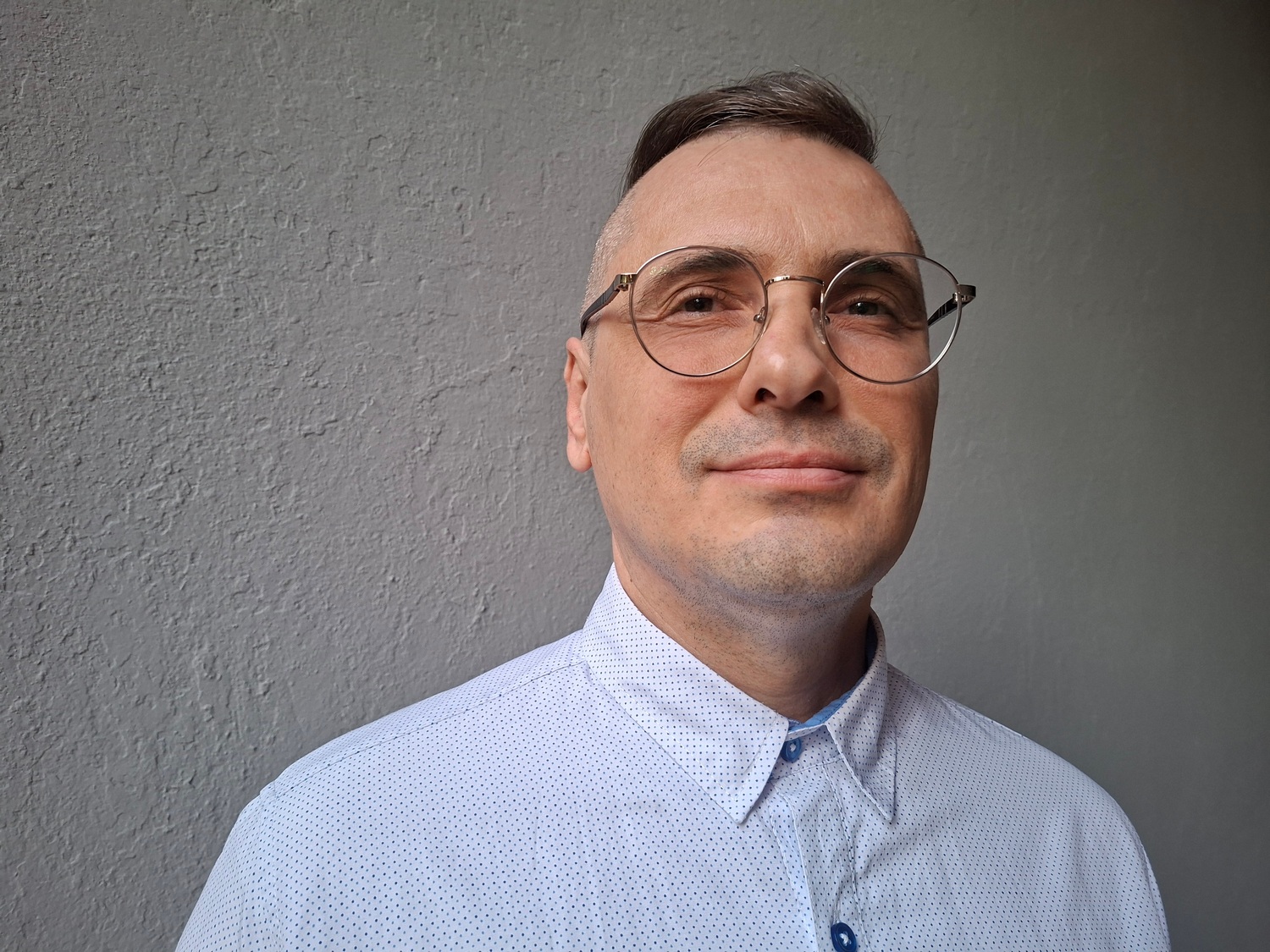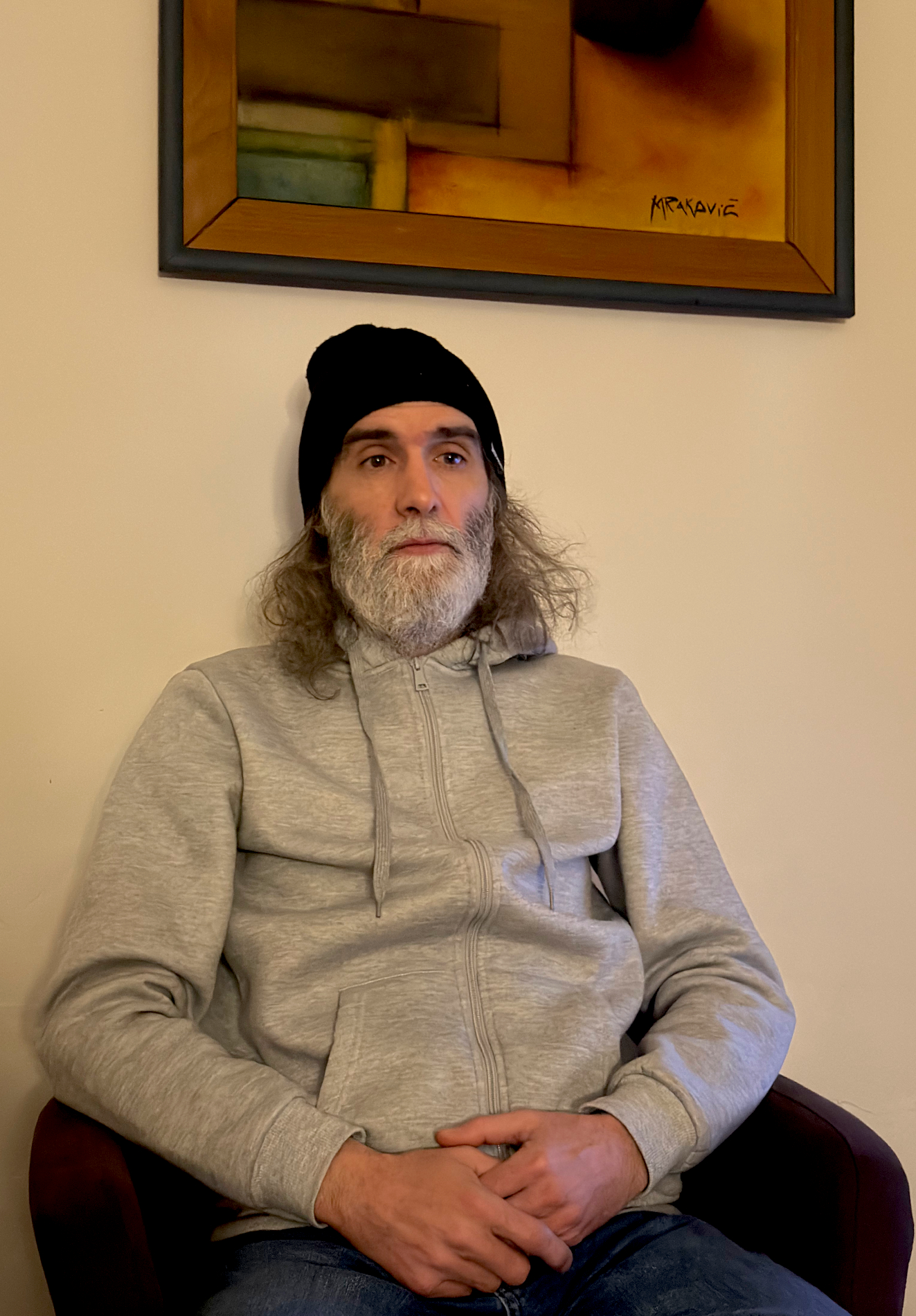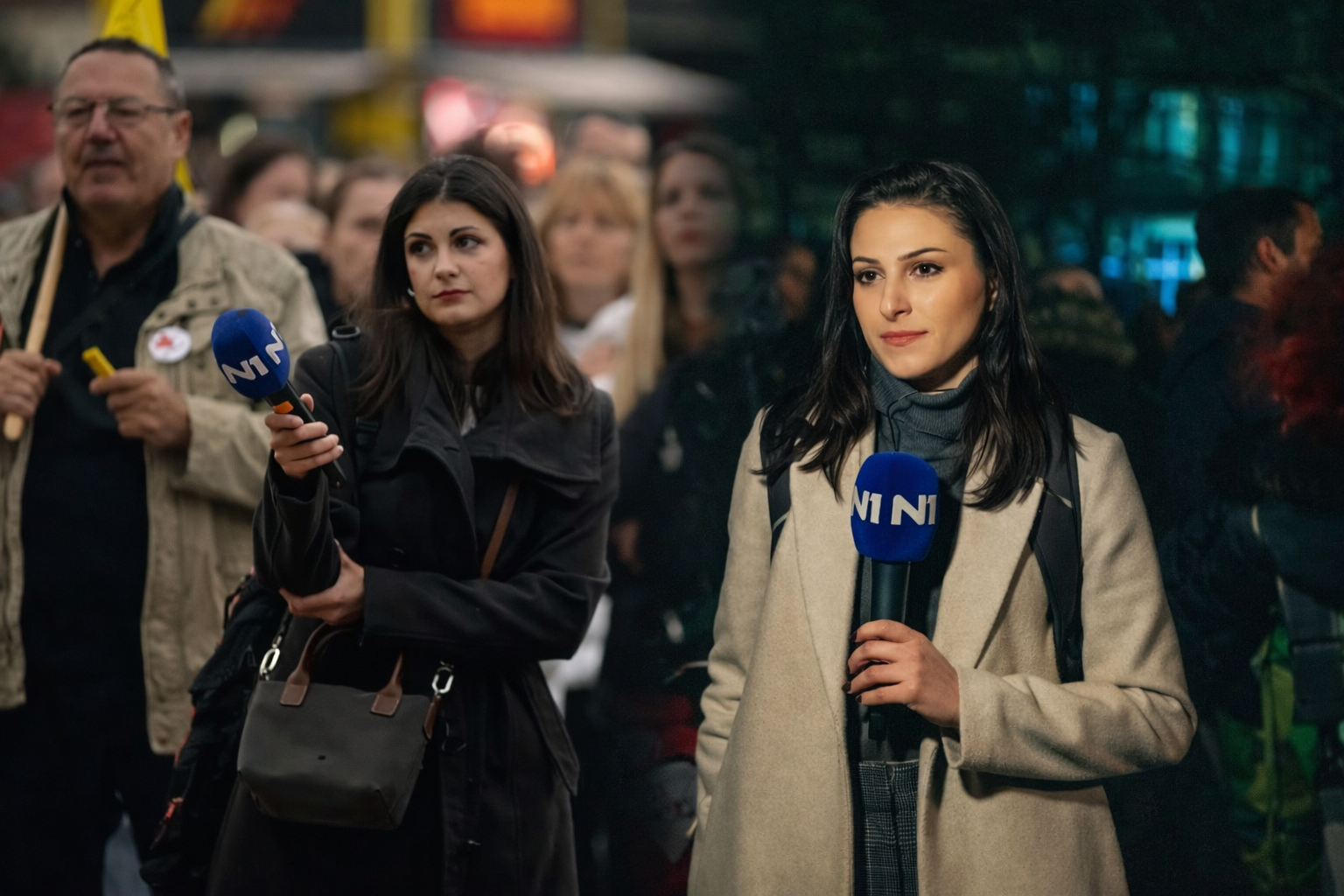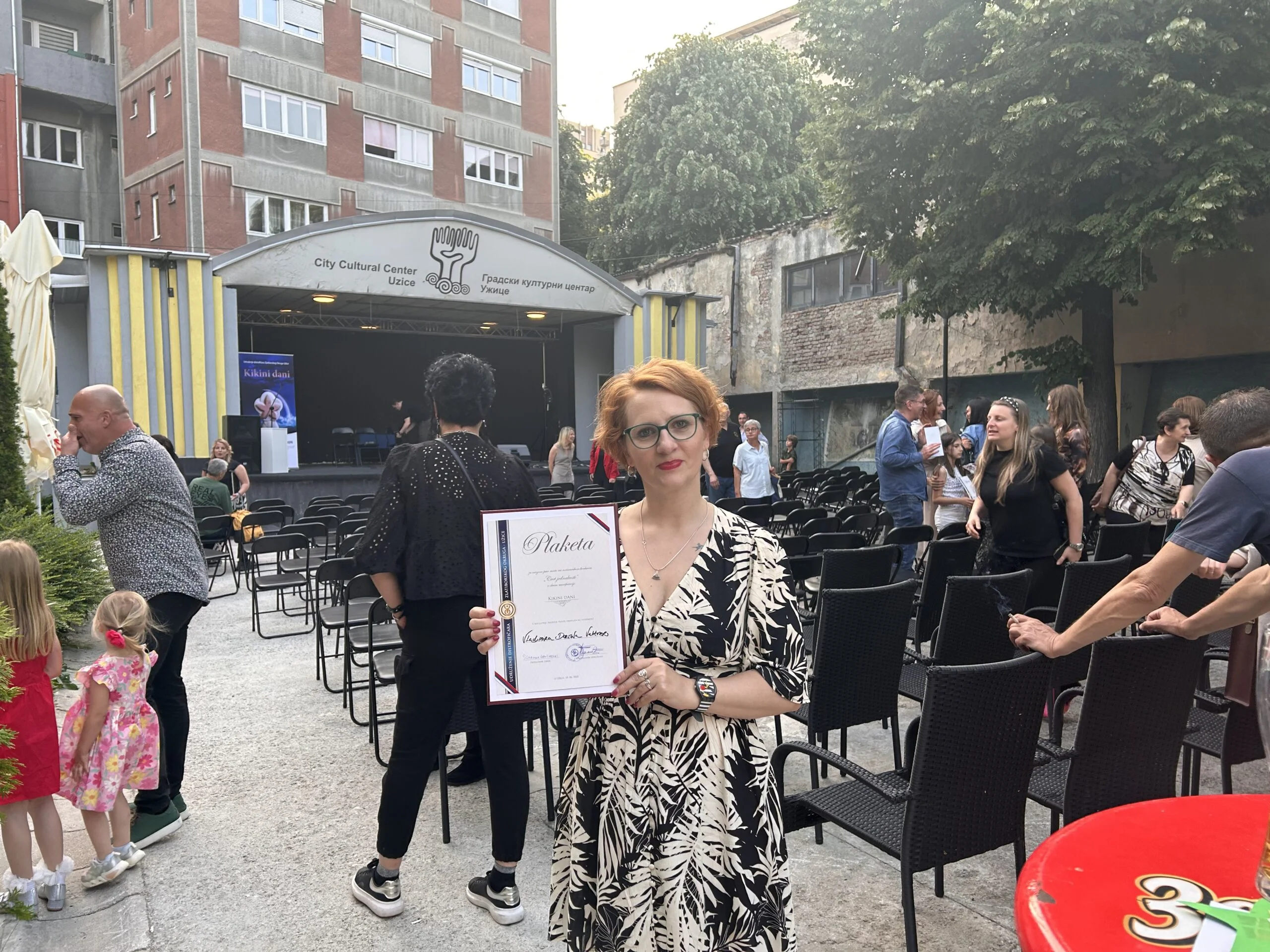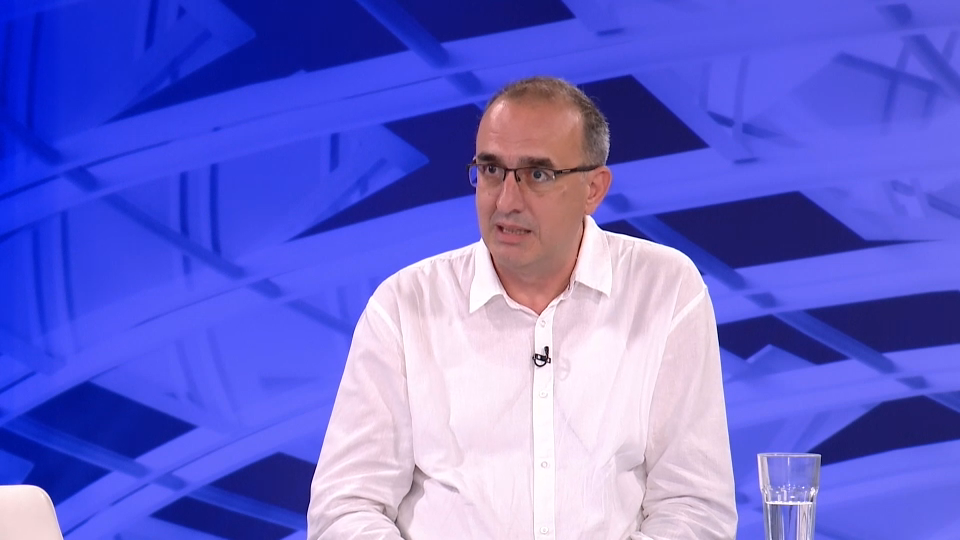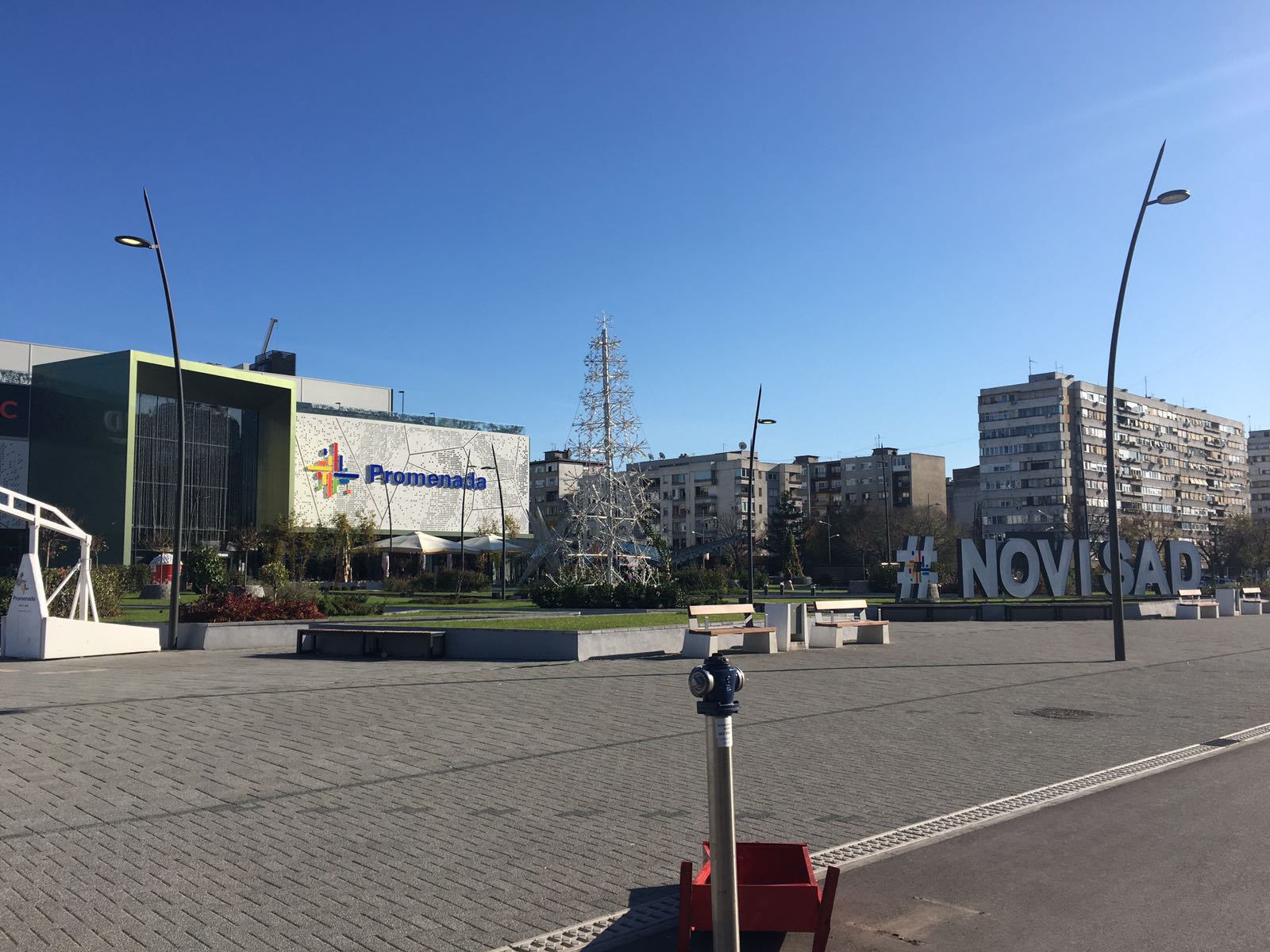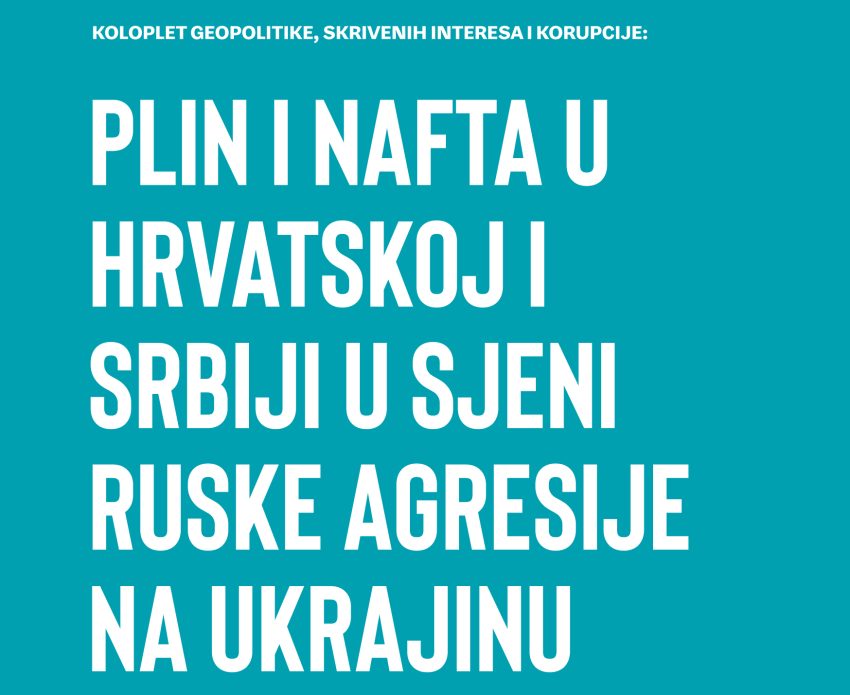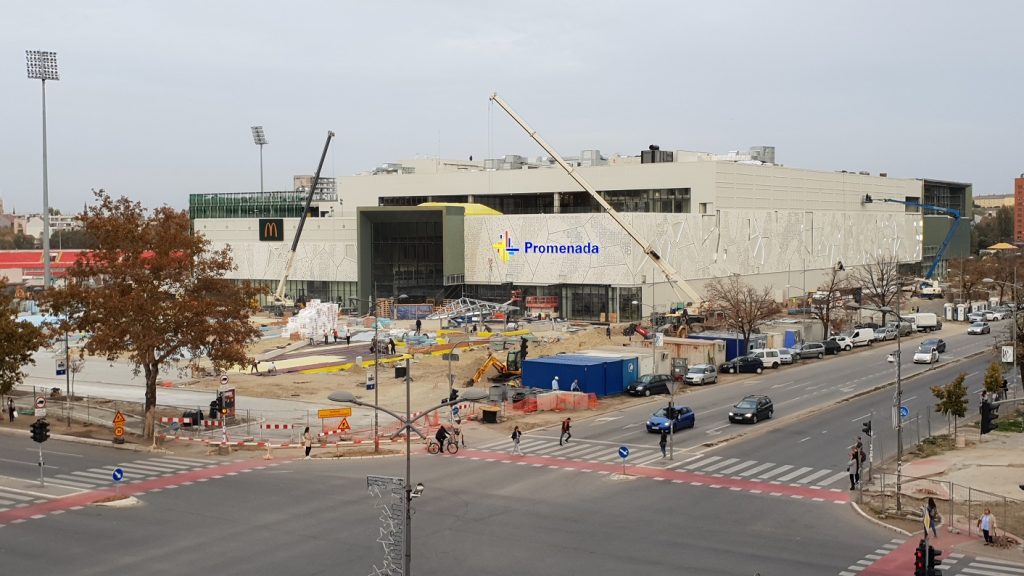
A lot of dust has been raised by the construction machines at the Promenada construction site in Novi Sad, which is why local residents have been complaining. However, a real sandstorm was raised by the claims made by city authorities’ coalition partners, opposition parties and NGOs that the design had been poorly executed and that it posed a threat to the safety of the citizens of Novi Sad. Several months of research and investigation of the Investigative and Analytic Centre of Vojvodina (VOICE) have proven that the claims are not unfounded.
Ever since the first accusations were directed at NEPI Rockcastle for creating general threat because they wanted to cut their expenditure, many irregularities have surfaced in relation to the construction of the biggest shopping centre in Serbia.
Over the past two months, there have been talks of complications with underground water, the dangers it posed, as well as of the fact that some construction works took place without necessary permits.
These numerous accusations prompted the investor to reply with generic statements in which they said all the works were being conducted in accordance with the applicable laws. However, for most of the time, they have been silent, ignoring the problem.
The competent institutions have remained almost completely silent when asked any questions. Still, after following the story for several weeks, VOICE discovered a number of mistakes in the design, suspicious business conduct of the companies commissioned to perform works, as well as a series of mayor concessions granted to NEPI Rockcastle.
Who needs hydro-insulation when we have the sewage system?
A team led by architect Djordje Bajilo was originally commissioned to design the biggest shopping centre in Serbia. They designed, among other things, the construction and foundations, based on a massive raft foundation with vertical and horizontal hydro-insulation.
It was planned for the foundation to be protected with insulation foils and covering, which is an expensive solution, but one that guaranteed that the water which is around two meters under Promenada would not penetrate. This is type of passive protection from underground water, regularly used when the soil is “drowning” in underground water.
Due to the fact that the soil in the residential area of Liman in Novi Sad is problematic and the existence of water column, the plan was to increase the mass of the facility by adding concrete in order to prevent the water from damaging the facility. This was an additional expenditure imposed on the investor bearing in mind the size of the facility.
Based on Bajilo’s design documentation and conceptual design, the city’s department of urban planning and housing issued location requirements in February 2017, a building permit in April and a permit for execution of works in May.
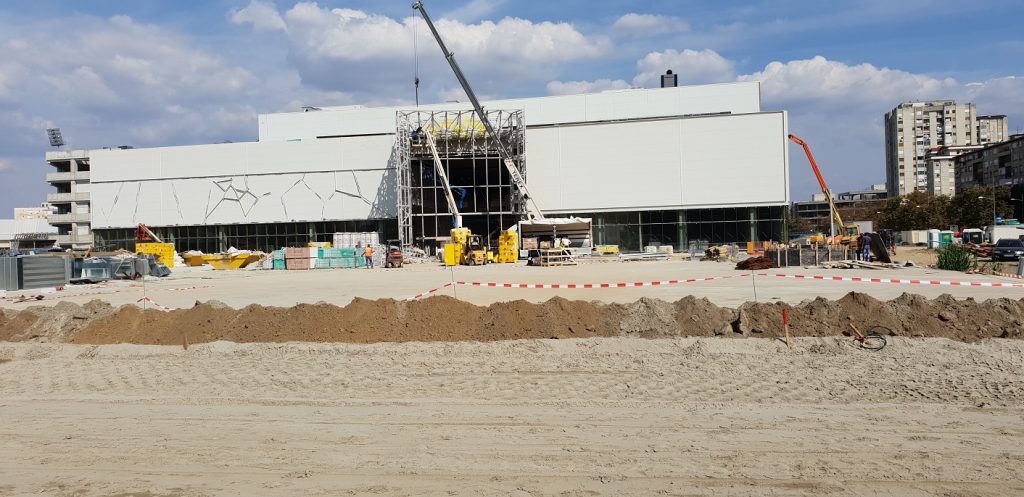
Eight months after the workers arrived at the construction site, there was a huge U-turn: the investors release Bajilo, replace his documents completely and opt for a system of active protection from underground water, designed by PAB Company from Vrsac.
The chief designer Zsolt Kokrehel came up with a new construction design, which included installation of wells and permanent terrain drainage, i.e. pumping underground water into the sewage system of Novi Sad during the exploitation of the facility.
The designer opted for this option in order to reduce the expenditure to the minimum, as it is stated in the structural analysis.
A concrete diaphragm, which protected the excavation site during the construction works, has remained the only barrier between underground water and soil pressure on one side and the underground space on the other. Pillars were installed at the depth of eight meters, supporting a combination of block foundations and a thin concrete slab.
The experts who talked to VOICE warn that such foundation cannot sustain buoyancy force, nor prevent infiltration of underground water. The designers knew that and noticed the water penetrating the base and the walls of the diaphragm in the amount of 15-17 litres per second, i.e. 57,600 litres per hour.
Even though they were aware of the situation, they did not consider hydro-insulation. Instead, they installed wells underneath the whole area of the facility and the workers on the construction site denied the existence of these wells when the journalist from VOICE visited the site.
A professor at the Faculty of Civil Engineering in Subotica, Petar Santrac was among the first to comment on this huge and potentially fatal mistake, since he had heard about it first-hand, since the Romanian company SBR Soletanche Bachy hired him to assess the impact of constant drainage of underground water onto the facilities in the vicinity of Promenada.
“If they don’t drain the water constantly, the levels of the water in the facility will be levelled with the level of the underground water, which means that the whole first and second floor, unless excess water is released somewhere,” Santrac explained to VOICE.
Besides Santrac’s comments, the contractors in charge of Promenada, who claimed that no wells had been installed, are also refuted by the documents related to a special project, which encompasses installation of 12 stations, which are supposed to work in two shifts and pump excess water into the sewage system throughout the whole period of the facility’s exploitation.
In order to be able to continuously drain the soil, the investor needed a consent from “Vodovod i kanalizacija” PUC. That is why in February 2017 they submitted a request for a permit allowing continuous pumping of excess water, as VOICE has found out from “Vodovod i kanalizacija.”
This public utility company rejected this request, explaining that drainage of underground water was not “among our core activities and that nowhere in the world is underground water released constantly into a sewage system.”
Although without the necessary permit, the investor decides to continue according to the plan, while the competent department of the city management allows changes to the building permit.
The investor’s decision to pump excess underground water into the sewage system of Novi Sad, despite the negative opinion of “Vodovod i kanalizacija”, is seen as amoral by master of architectural engineering Slobodan Acketa, one of the founders of the NSBuild civil engineering forum.
“If they pump excess underground water into the sewage system where faecal water and stormwater already exist, it will lead to inevitable flooding of all basements at some point, wherever the sewage system is at a lower level. A heavy rain would see us all swim in faeces,” says Acketa.
The design of continuous drainage and pumping of water into the sewage system is even mentioned in the altered urban plan regarding Promenada, designed by “Urbanizam” PC, which was approved by director Dusan Miladinovic.
Designer Djordje Bajilo refused to talk about why he did not want to design an active system of protection from underground water, nor did he want to comment on the changes to his design, explaining that he had fulfilled his contractual obligations and the contracting authority had fulfilled their obligations towards him.
“What happened later and why there were subsequent changes in the design, we do not know. Bear in mind that we have a very precise confidentiality agreement with the investor. It regulates mutual relations and we are obliged to keep trade secrets,” Bajilo said.
Assessment of impact on nearby facilities incomplete
A study of the impact of the drainage system at Promenada on the nearby facilities has been conducted for the purpose of drafting a design of permanent drainage with wells. The study stipulates that due to a large number of unreliable data crucial for calibration, it is not possible to give an explicit assessment.
Instead, we got the maximal values of underground water level lowering, terrain inclination and presumptions of the most unfavourable effect on nearby facilities.
The estimates were based solely on the data obtained during measuring in January and February 2018, since the data collected in 2017 were deemed useless. Some wells were not working, some were destroyed, while new ones have been installed in the meantime. The stage of concrete diaphragm construction was not known last year, it is stated in the explanation of the procedure.
Even though the parameters are missing or unreliable, the study concludes that continuous draining of the terrain underneath Promenada has no effect on soil settlement in the vicinity. The study does not mention the period for which this assessment is valid, i.e. until when can they guarantee that there is no threat to the nearby facilities.
Project for newly founded and problematic companies
As we can see in the altered building permit, after the Djordje Bajilo Arhitekti design studio had left the project, most of its work was divide by two companies: HBSRB from Nova Pazova and PAB Company from Vrsac, daughter-company of Romanian PAB Romania SRL.
According to the information available at the portal of the Serbian Business Registers Agency, the HBSRB company owned by young architect Jelena Milosevic from Nova Pazova, was established in August of last year, two months after the works on the project commenced.
An interviewee who wished to remain anonymous, but is well informed about the events surrounding the construction of Promenada, claims that this company was established on purpose, in order to implement the altered project design, by Romanian HBRO, which designed the competition solution in cooperation with Austrian HB Design&Handels.
“They invited participant to the competition and the job was given to a company that works a lot for NEPI, some Romanian guy who has done five or six shopping centres. He later registered a company on the name of some girl from Vojka and it is a sole proprietorship, which is ridiculous,” says our source.

A part of the project related to building the construction and drainage system was awarded to PAB, a company whose account was blocked from October 2015 until seven days before the works on Promenada started.
The company’s account was blocked again in mid-October 2018 due to a debt of more than 126 million dinars.
Representatives of the “PERI oplate” company, who claim almost 76 million dinars from PAB, did not want to comment on the situation, but Branko Dobricanin, director of “DOKA Serb”, which also initiated the blockade of PAB, confirmed that the debt incurred during the works on Promenada.
In an interview for VOICE, Dobricanin said that PAB bought material and rented equipment worth over 50 million dinars from his company, but never paid anything. On top of it all, they returned damaged equipment, which is why the company he runs was forced to initiate a proceeding against the debtor.
When asked whether he had tried to talk to the investor directly and warn them they were working with a company which creates debts and causes financial damage to its partners, Dobricanin replied there was no need for that, because the investor was well informed about it.
“There is probably an agreement in place between the two of them to solve the matter somehow, since they don’t owe money to us, but to a competitor of ours as well, and they are in an even graver situation,” he says and adds that PAB was a passive company from its registration in 2014 until the Promenada project, with only one employee.
Apart from PAB, the drainage system construction included the Graditelj NS company, run by Ljupko Kalaba, which was allegedly involved in fraudulent activities in 2011, when an investigation conducted by the State Audit Institution concluded that all tenders organised by “Vodovod i kanalizacija” PUC had been won by this company.
VOICE wrote about the business conduct of “Graditelj” last year, when we discovered that in the previous three years Kalaba’s company had been selected three times to organise the system of degasification of a landfill in Novi Sad and each time the landfill in question was SIII. The total value of the works for “Cistoca” PUC was almost 16 million dinars and each time a price higher than the offered one was negotiated.
One promise made, another fulfilled
The public was intrigued when part of the parcel within the scope of the “Vojvodina” Sports and Business Centre (SPENS) was sold for record 3.7 billion dinars. The city’s silver dowry, as that part of land was dubbed by the Democratic Party, became even more interesting when it was announced what was going to be built on it.
The plan to build another shopping centre between Merkator and SPENS was met with disapproval among some citizens, but their dissatisfaction was somewhat subdued when it was promised that the future facility would feature a green roof resembling an urban park and be something Serbia had not seen before.
The plan was to plant trees and other plants, install sports and recreational facilities, pedestrian zones and a lane for jogging on the area of ten thousand square metres, in order to compensate for the loss that the construction of such massive facility would create.
The Djordje Bajilo Arhitekti design studio came up with a solution and plan in accordance with the investor’s plan, which would make the changes to the selected and presented solution minimal.
The final appearance of Promenada has remained a mystery almost to the very end, both to the citizens and the numerous members of the NSBuild forum, who monitored the construction works on a daily basis. It was not until the construction works entered the final stage that it became clear that the investor had opted for the most economical version of installing greenery on the room.
The altered design solution saw the highest flat roof of the shopping centre become impassable, and only grass can be planted on it and possibly some shrubs. The envisaged sports and recreational facilities had their range significantly reduced and transferred on a temporary piazza on the ground floor, which will be removed if the investor decides to implement the second stage of construction.
A representative of “Ne damo livadicu” citizens’ initiative Dejan Radosavljevic is not surprised that the facility would be much different from the expected in terms of greenery, because, as he says, Promenada is not the first case of this type.
“We are witnessing a new type of fraud and we already have a number of examples where such way of designing, with green roofs and walls, are presented pompously. Let me remind you that the Park City residential area was also advertised as a facility which would be completely green and that never happened,” says Radosavljevic.
The details of landscape design on the site of Promenada were prescribed in the urban plan adopted in January of last year, which envisaged semi-intensive greenery on the highest roof of the shopping centre, with many sports and recreational facilities. It was already in September that the plan was adapted to accommodate the changes the investor wanted.
“Urbanizam” delayed to provide information
It is worth noting that even though the Rulebook on the content, methodology and procedure of creating urban plans stipulates that the urban plans have to be published on the official website of “Urbanizam Novi Sad” PC, the plan for the area at the corner of Bulevar oslobodjenja and Bulevar cara Lazara has never been posted on the website of this company.
Only after VOICE directly addressed the director of “Urbanizam” Dusan Miladinovic, pointing out the mistakes made by the bodies he was managing and warning that we would have to turn to the commissioner for the information of public importance, because the deadline for submitting the requested information had passed, did they submit the disputed urban plan.
Furthermore, the Plan of detailed regulation of 2011 introduced guidelines for landscape decoration of the parcel where Promenada was to be build a few years later. The designers then recommended that sports and recreational facilities should cover at least 50 percent of the area in comparison to other facilities.
However, when the plan was changed in 2015, when it was decided to sell the parcel, this recommendation was neglected and the decision whether such facilities would be included at all and in what scope was left completely to the future investor. According to those VOICE managed to talk to, this is a clear example who business is conducted exclusively to serve private capital.

The investor’s problem soon became the problem of city officials. Mayor Milos Vucevic has tried to turn this issue into a political one on several occasions, stating that it was the way the opposition parties were fighting for political points, despite the fact that the first appeal was sent by their coalition partner, the League of Social Democrats of Vojvodina.
Although at first he asked the public to be patient until experts expressed their thoughts, when it eventually happened, he started pushing the agenda of the value of NEPI’s investment, emphasising that people were creating an atmosphere that would dissuade owners of large capital from coming here.
Soon after the story about Promenada started, mayor Milos Vucevic announced a “for-cause” construction site inspection and pointed out that all the facts were being checked on a daily basis. Two weeks later, when talking to the Radio-Television of Vojvodina, he said that the inspection had been conducted and that the works were conducted in accordance with the permits.
However, in mid-October, VOICE discovered that the inspectors were still present on the site. Three days later, Vucevic said that there was no more need for journalists to address city’s departments, even though they had avoided providing any information all the time.
Not even two months after the promised answers has the city’s department in charge of inspection published any official information.
Nor has any information been provided regarding the question how it was possible to continue the construction works on Promenada despite the fact that in late September “Vodovod i kanalizacija” rejected to extend the permit for pumping excess underground water during construction works.
The permit, which is extended for up to two or three months, while the works on the foundation are in progress, was valid for almost a year in case of NEPI, due to the consent allegedly issued by the Provincial Secretariat for Energy, Construction and Transport to the investor in order to explore the exploitation of underground water.
Provincial secretary Nenad Grbic has not answered the questions submitted by VOICE before this text was published, regarding what kind of exploration it was, what the results were and why the investor would conduct such exploration in case of a commercial facility.
Mladen Savatović (VOICE)









